Parasite cleanses have become an increasingly popular in today’s health-minded society. Yet when you bring in breastfeeding into the mix, it gets a bit more complicated.
This article dives deep into this complex topic of parasite cleanses while breastfeeding, exploring the interaction between breastfeeding and parasite cleanses. Our objective is to offer comprehensive insight that will allow you to make informed health decisions for you and your baby. So join us as we embark on this fascinating voyage, uncovering all aspects of parasite cleanses during breastfeeding.
Understanding Parasite Cleanses
Parasite cleanses are tailored specifically to eliminate parasitic infections from the human body, using various approaches ranging from holistic natural cleanse to medical. Both ways feature specific methodologies and purposes.
Holistic natural cleanses harness nature’s bounty by employing various foods, herbs, and supplements from nature to fight parasitic infestations. Packed with antioxidants and anti-inflammatory compounds, these cleanses create an unfriendly environment for parasites to inhabit, effectively driving them away. Specific ingredients for holistic natural cleansing include garlic, pumpkin seeds, and various herbs; many individuals also turn to specialized tinctures for maximum effectiveness.
Medical approaches to parasite cleansing involve the use of pharmaceutical-grade antiparasitic medications. These treatments are specifically formulated to disrupt and target specific parasite types to eliminate them from your body. It’s important to remember that these powerful treatments may have potential adverse side effects, especially when it comes to pregnancy and breastfeeding.
Understanding parasite cleanses’ principles and potential ramifications are paramount for breastfeeding women, particularly those considering mother and infant breastfeeding. A better grasp of their implications helps ensure substances potentially transferred into breast milk are accounted for, protecting both mothers’ and babies’ wellbeing.
Check out this short video to learn more on parasites and how to get rid of them.
Can Parasites Pass Through Breast Milk?
The question “Can Parasites Pass Through Breast Milk?”, isn’t an easy to answer straight-foreword. Numerous variables come into play, including parasite type, mother and infant immune responses. Certain parasites, like worms such as roundworms and tapeworms have been known to pass into breast milk – adding another level of complexity for breastfeeding mothers.
While transmission risks during breastfeeding tend to be low, they must still be taken seriously and considered when dealing with parasitic infections. So a mother that has a current parasite infection needs to be proactive with her health, while keeping in mind the health of her baby.
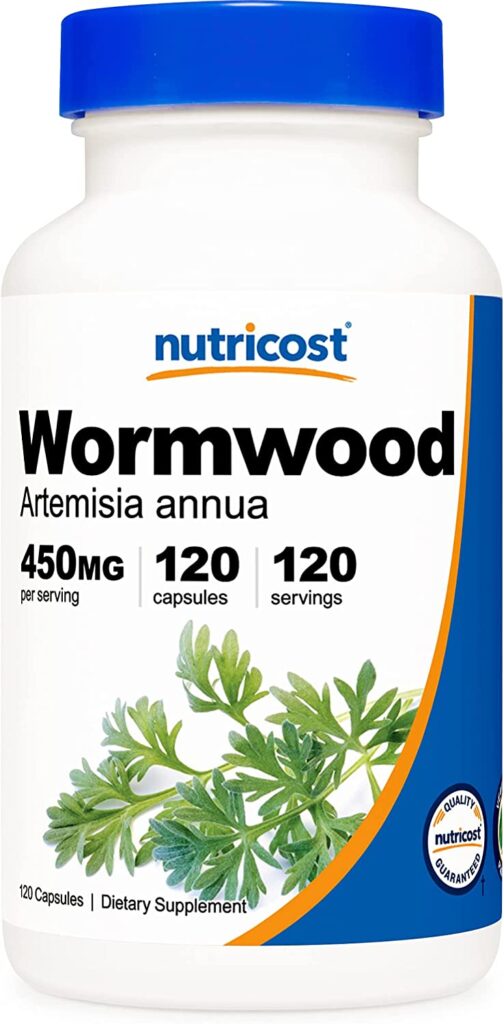
Wormwood While Breastfeeding?
Wormwood, an herb renowned for its powerful antiparasitic properties, it often comes up when discussing parasite cleanses. However, when used by breastfeeding mothers, it raises an entirely different question – is wormwood safe while breastfeeding?
Wormwood is often employed in parasite cleanses as a tincture, and its potent compounds have long been recognized for their ability to deter parasites. Numerous studies suggest the herb’s effectiveness against various parasitic infections, further solidifying wormwood’s place as a natural parasite cleanse remedy.
However, the story takes on greater nuance when applied to breastfeeding mothers. While wormwood’s potent compounds may help fight parasites effectively, some could pass into breast milk and pose potential risks to nursing infants. Furthermore, its impact on the mother’s health and lactation should also be considered.
Animal studies have suggested that wormwood could induce miscarriage, prompting concern over its use during pregnancy and lactation. Wormwood oil contains the chemical thujone, which has been identified as potentially toxic to children; combined with limited human research on its safety during breastfeeding, health professionals advise breastfeeding mothers against its use.
Due to these risks, breastfeeding mothers are strongly advised against taking wormwood. Consulting healthcare professionals before embarking on any cleanse that includes wormwood herbs is vital to ensure both mother and infant safety.
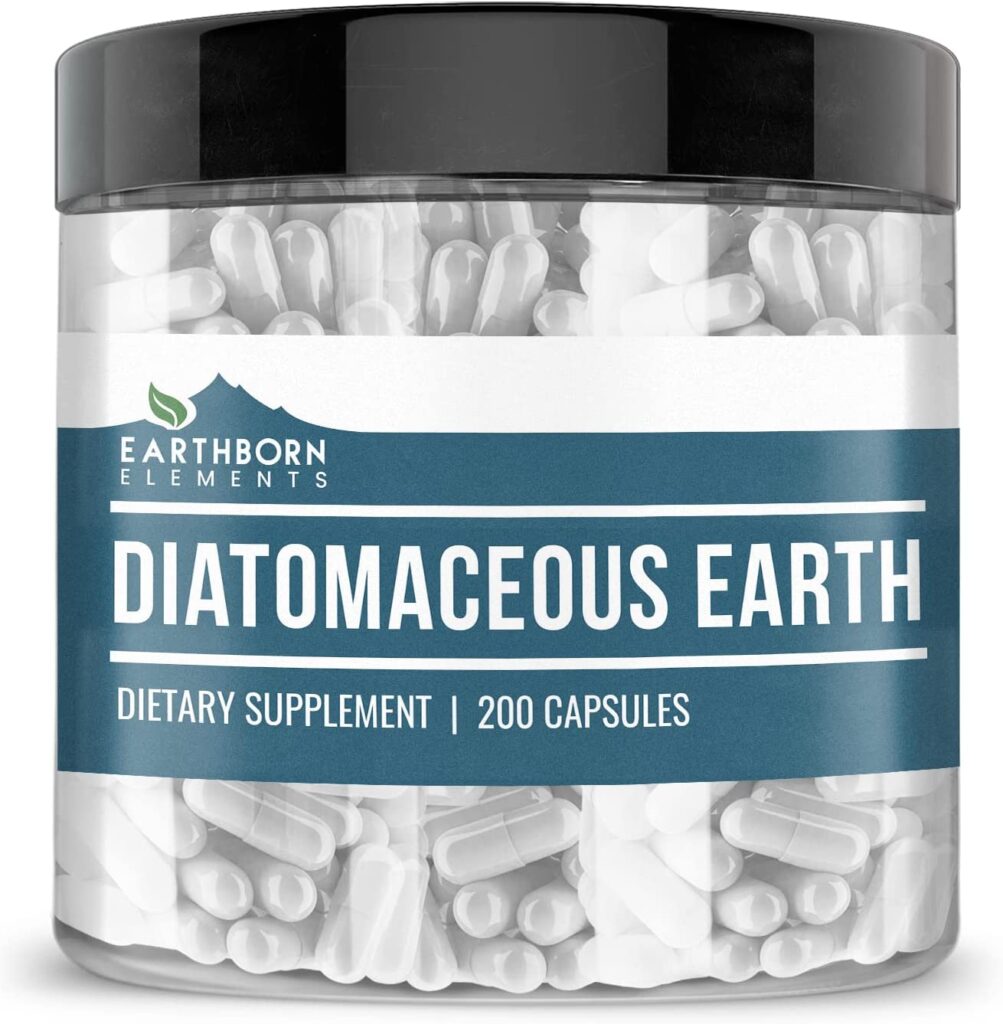
Diatomaceous Earth While Breastfeeding?
Diatomaceous earth, a naturally occurring sediment composed of fossilized diatoms, has long been revered for its purported ability to combat parasites. Studies have verified its efficacy as an all-natural alternative in parasite cleanse regimens.
However, when it comes to diatomaceous earth and breastfeeding, there is little scientific research demonstrating its safety. No adverse studies have identified adverse reactions of diatomaceous earth on breastfeeding mothers or their infants. Thus indicating it should likely be considered safe.
It is important to remember, the absence of evidence is not necessarily evidence of absence. While the current scientific consensus does not point towards any adverse effects, it is important to approach diatomaceous earth with caution given the lack of comprehensive research.
Therefore, breastfeeding mothers considering using diatomaceous earth should consult a healthcare professional to make an informed decision about potential risks and benefits.
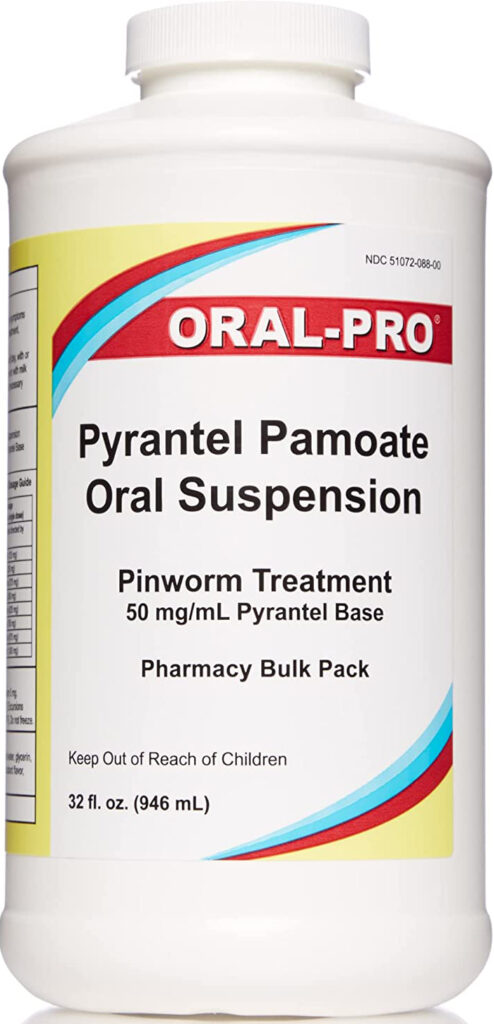
Pyrantel While Breastfeeding?
Pyrantel treats infections caused by various parasites, including roundworms, hookworms, and pinworms. Since parasites such as these are widespread and can lead to numerous health complications, readily available treatments like pyrantel are vital for treating them successfully.
Discussion surrounding pyrantel’s use by lactating women often centers on its potential adverse impacts on breastfeeding. Although no specific studies have been done regarding its interaction with breastfeeding, the World Health Organization has listed it as safe for use during breastfeeding
This classification from an internationally respected health organization gives breastfeeding mothers some assurance regarding the safety of pyrantel use. However, it is important to realize that while this suggests a level of safety, it does not replace the need for seeking individual medical advice prior to starting a course of pyrantel if you are currently breastfeeding.
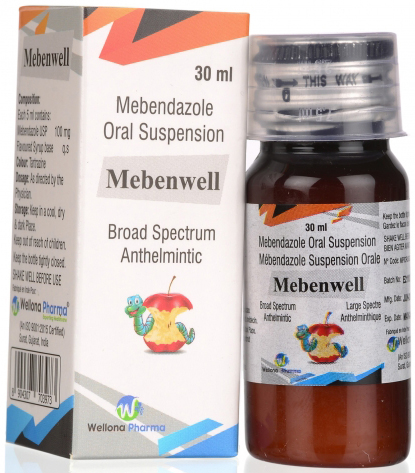
Mebendazole While Breastfeeding?
Mebendazole is widely utilized to treat multiple parasitic worm infections, such as pinworm, whipworm, roundworm, and hookworm infections. Due to its broad spectrum of activity on a widespread health concern, it offers valuable assistance in the battle against parasitic infections.
Research exploring the relationship between mebendazole and breastfeeding has provided some interesting findings. One study discovered that mebendazole was undetectable in breast milk, suggesting no transference to nursing infants. Another found small amounts of mebendazole present after oral administration but without adverse effects in breastfed infants.
Mebendazole’s pharmacokinetics may provide insight into this discrepancy; most of its dose is eliminated through stool, and thus limited absorption could limit how much of its potential exposure reaches breast milk and, consequently, to nursing infants.
Based on these studies, mebendazole can generally be considered safe during breastfeeding. Furthermore, the World Health Organization has verified its safety profile, which has approved its use among lactating and pregnant women.
Although breastfeeding mothers can feel confident that mebendazole will not negatively impact their breastfeeding, it is still wise to discuss any medications (including mebendazole ) they are considering with their healthcare provider before taking action.
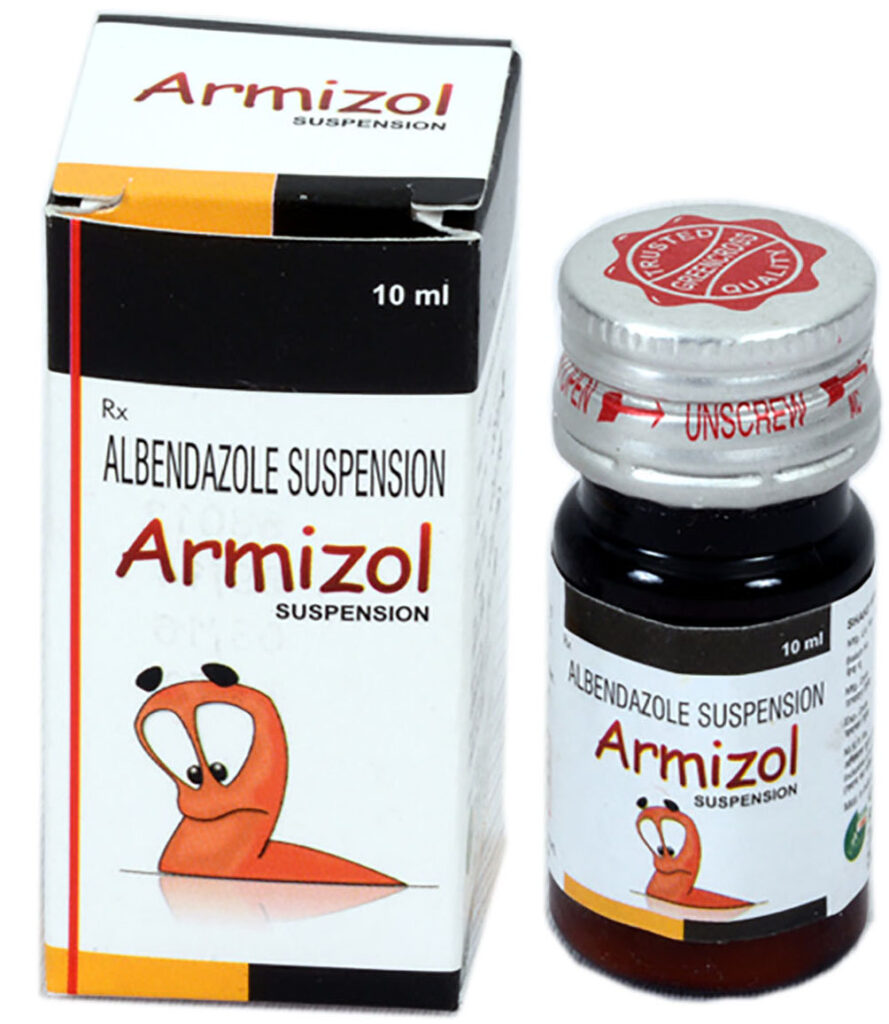
Albendazole While Breastfeeding?
Albendazole has long been used to effectively treat parasitic worm infections such as echinococcosis, neurocysticercosis, giardiasis, and various helminthiases such as ascariasis hookworm and trichuriasis. Its widespread usage demonstrates its success against numerous parasitic pathogens.
Studies on the interaction of albendazole with breastfeeding have produced some fascinating results. Albendazole was detected in breast milk following oral administration, suggesting its potential transference to nursing infants; however, researchers concluded that its concentration levels were likely, not harmful.
Albendazole can be found in breast milk in relatively low concentrations and exposure levels with minimal risk to an infant, making this drug suitable for breastfeeding use.

Fulvic Acid While Breastfeeding?
Fulvic acid is an organic chemical compound produced when soil microorganisms break down plant material over a prolonged period. It has recently gained increased recognition among health and wellness circles. Its reputation is built upon its ability to deliver vital minerals and nutrients directly into our cells for sustained wellness.
Scientific knowledge surrounding Fulvic acid, particularly its use during breastfeeding, remains limited. There are limited clinical trials that provide any evidence on the safety or benefits of fulvic acid for breastfeeding mothers and their infants.
Fulvic acid has long been recognized for its potent antioxidant and anti-inflammatory benefits, and many natural health practitioners suggest that it could boost overall immune function. While such claims often rest on preliminary research or anecdotal evidence. It is also popularly used in parasite cleanses, yet no studies have been done on its impact on parasites.
Noting the non-compliance with regulations by dietary supplements like fulvic acid is also crucial since its quality and content may differ between products. This lack of oversight may introduce additional risks to breastfeeding mothers and their infants.
Fulvic acid may provide potential health benefits; however, evidence to support its safe use during breastfeeding for parasite cleansing remains limited. As is valid with any supplementation regimen, breastfeeding mothers must consult their healthcare provider before beginning fulvic acid or any form of supplementation regiments.
Parasite Cleanse Supplements While Breastfeeding?
Parasite cleanse supplements, commonly touted as ways of ridding our bodies of parasites, have surged in popularity. These products typically include both natural and synthetic ingredients designed to create an inhospitable environment for parasites – yet when taking these products while breastfeeding, it’s vitally important to proceed carefully.
The supplement industry is vast and complicated, offering products promising various health benefits. But it’s essential to remember that it operates with considerable autonomy – meaning product labels may or may not always reflect accurate information.
Studies have repeatedly highlighted discrepancies between what is advertised on supplement labels and what can be found within them. Some products may contain ingredients not listed on the label that could cause unexpected side effects; other times, ingredients may have different amounts than indicated, leading to potencies either too high or too low than expected.
Disparate ingredient intake or incorrect dosing can be especially alarming for breastfeeding mothers. Unexpected ingredients or incorrect dosages could have severe repercussions for both their health and that of their nursing infant, passing into breast milk and being consumed by them directly – leading to possible risks to both mother and infant health.
Furthermore, although some ingredients found in parasite cleanse supplements have demonstrated antiparasitic properties, many others may not have been adequately researched – adding another level of uncertainty and risk.
While parasite cleanses may seem appealing, breastfeeding mothers must consult their healthcare provider before beginning any supplement regimen. Furthermore, only purchase supplements from reliable manufacturers who employ quality assurance procedures and transparent labeling practices.

Final Thought
Motherhood can be an intensely complex journey, making good health an absolute priority for mothers and breastfeeding infants. Deciding if and when a parasite cleanses is necessary can depend on many factors, including personal history, current circumstances, and any available scientific research evidence.
Adverse reactions should always be carefully considered when starting a new medication, particularly when breastfeeding. Reactions can manifest themselves in various ways, and while some might be mild and transient, others could pose more severe health risks for mothers and infants alike. Furthermore, substances consumed by mothers could transfer through breast milk directly onto nursing infants, potentially leading to unexpected health concerns.
Consult with a physician or qualified health provider before beginning a parasite cleanse or new treatment while breastfeeding is vitally important. They can offer invaluable insight into its safety and effects on both mother and infant health while offering tailored advice tailored specifically for each situation – particularly helpful when navigating the vast array of supplements and therapies available today.
In conclusion, While parasite cleanses can help manage parasitic infections, they should be used with care during breastfeeding. With expert guidance from healthcare providers and informed decisions being made by mothers regarding this challenge effectively. Remember, the goal is not just to be free of parasites, but to maintain the overall health of your baby during this precious and delicate period of their life.

